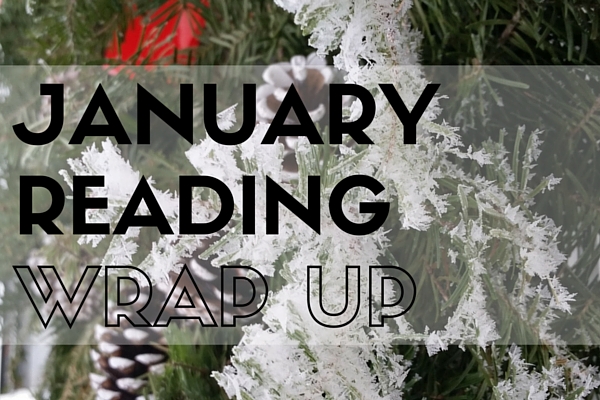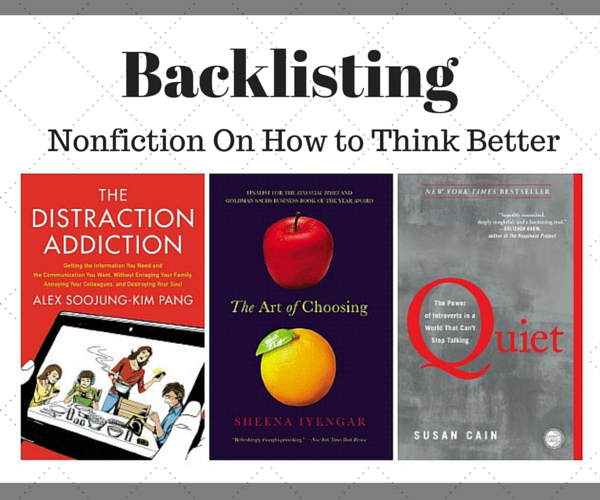
As I was working on my review of Presence by Amy Cuddy, I started thinking about some of the other really great psychology books I’ve read in the last few years that I don’t think got enough attention. It gave me the idea for a new, semi-regular feature looking at some books I recommended highly when I first reviewed them that are out in paperback now – sort of a backlist bump for some great titles I think you’ll enjoy.
The theme of this first trio is psychology, specifically three books that get at different ways of thinking that I’ve found myself referencing frequently since I first read them:
The Distraction Addiction by Alex Soojung-Kim Pang (My Review) – This book is all about how we can stay connected using technology without “without diminishing our intelligence, attention spans, and ability to really live.” Pang uses a metaphor of the “monkey mind” to talk about how technology affects us and encourages a practice of “contemplative computing.” Most of what is in the book isn’t new, but it was packaged in a way that resonated with me and resulted in making a couple substantive changes to how I related to my devices. (Note: Despite the fact that it was published in 2013, this one is still only in hardcover… that’s super annoying!)
The Art of Choosing by Sheena Iyengar (My Review) – I probably reference anecdotes from this book more often than just about any other piece of nonfiction I’ve read since I started blogging. Iyengar, a business professor at Columbia Business School, studies choices: how we go about making choices and what the consequences of those choices can be. She’s done some fascinating studies about what happens when we have an overabundance of choices and whether that ultimately makes us unhappier. Plus, Iyengar has a lovely, dorky sense of humor that I found really enjoyable to read.
Quiet: The Power of Introverts in a World That Can’t Stop Talking by Susan Cain (My Review) – Whenever I take the Myers-Briggs Personality Test, I am an off-the-chart introvert. But this fact tends to surprise people who don’t know me well because, for the most part, I’m pretty friendly and decent in social situations. It wasn’t until I read Quiet that I found a vocabulary for introversion/extroversion that made sense to me and that I could articulate to others, based a lot on what types of interactions and work styles energize introverts versus extroverts. This is another one that I’ve recommended quite a bit to others and referenced often when talking about personality.
What are some of your favorite books on how we think and how we can think better?

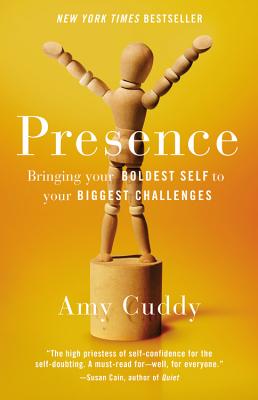 I’ve had “develop a yoga practice” and “practice meditation” on my resolutions lists for the last several years and never really made much progress with either. It’s partially laziness and partially intimidation – both practices seem simple, but are actually much more difficult to master than they appear. But many of the books I’ve read on distraction and productivity suggest that mindfulness can be helpful in those areas.
I’ve had “develop a yoga practice” and “practice meditation” on my resolutions lists for the last several years and never really made much progress with either. It’s partially laziness and partially intimidation – both practices seem simple, but are actually much more difficult to master than they appear. But many of the books I’ve read on distraction and productivity suggest that mindfulness can be helpful in those areas. 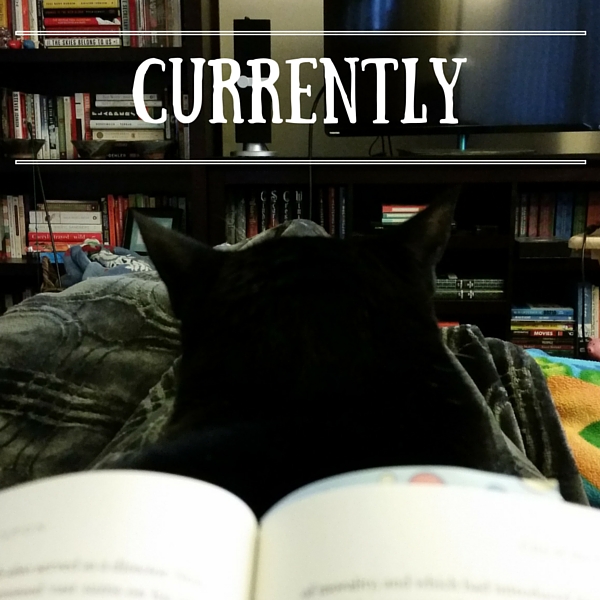
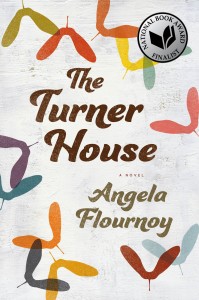 My first novel of 2016 set the year off on such a good foot – I absolutely loved The Turner House by Angela Flournoy.
My first novel of 2016 set the year off on such a good foot – I absolutely loved The Turner House by Angela Flournoy. 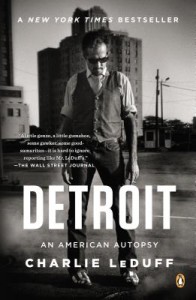 A lot has been written about the problems currently facing Detroit, but one of my favorites is
A lot has been written about the problems currently facing Detroit, but one of my favorites is 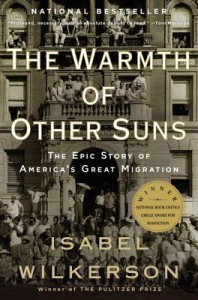 For a more historical look at Detroit and the impact of the Great Migration on it and other northern cities, I can’t recommend Isabel Wilkerson’s
For a more historical look at Detroit and the impact of the Great Migration on it and other northern cities, I can’t recommend Isabel Wilkerson’s 